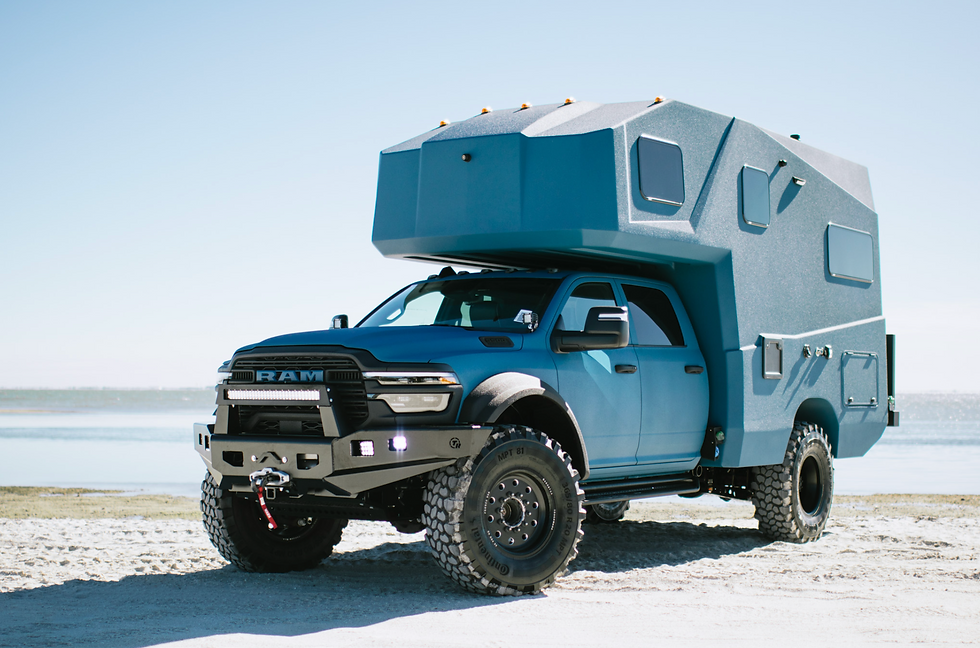The Difference Between Diesel, Gas, and Electric Vans
- Apr 5, 2023
- 2 min read
Diesel, gas, and electric van conversions are all popular options for those looking to convert a van into a camper or mobile office. Each type of conversion has its own advantages and disadvantages, and choosing the right one will depend on your specific needs and preferences. In this blog post, we will explore the differences between diesel, gas, and electric van conversions to help you make an informed decision.

Diesel Van Conversions:
Diesel van conversions have been a popular choice for many years. Diesel engines are known for their fuel efficiency and power, making them a great option for long-distance travel. Diesel engines are also known for their durability, which means that they can last for many years with proper maintenance. Diesel engines are also quieter than gas engines, which can be an important factor for those looking for a peaceful and quiet living space in their van.
However, diesel engines are also known for their emissions. Diesel engines emit more pollutants than gas engines, which can be harmful to the environment. In addition, diesel fuel is typically more expensive than gas, which can add up over time.

Gas Van Conversions:
Gas van conversions are another popular option for those looking to convert a van into a camper or mobile office. Gas engines are known for their power and acceleration, making them a great option for those who need to drive in urban areas or hilly terrain. Gas engines are also typically less expensive than diesel engines, which can be a significant factor for those on a budget.
However, gas engines are also known for their lower fuel efficiency. Gas engines typically get fewer miles per gallon than diesel engines, which can add up over time. In addition, gas engines are typically noisier than diesel engines, which can be a factor for those looking for a peaceful and quiet living space in their van.

Electric Van Conversions:
Electric van conversions are a relatively new option for those looking to convert a van into a camper or mobile office. Electric engines are known for their fuel efficiency and lack of emissions, making them a great option for those who are environmentally conscious. Electric engines are also typically quieter than both gas and diesel engines, which can be an important factor for those looking for a peaceful and quiet living space in their van.
However, electric engines also have some limitations. Electric engines typically have a shorter range than gas or diesel engines, which can be a factor for those who need to travel long distances. In addition, electric engines require charging, which can be a challenge if you do not have access to a charging station. Finally, electric conversions can be expensive, which can be a barrier for those on a budget.
Conclusion:
In summary, diesel, gas, and electric van conversions each have their own advantages and disadvantages. Choosing the right one will depend on your specific needs and preferences. Diesel engines are known for their durability and fuel efficiency, but they emit more pollutants than gas engines. Gas engines are known for their power and acceleration, but they are less fuel-efficient than diesel engines. Electric engines are environmentally friendly and quiet, but they have a shorter range and can be expensive. Consider your budget, travel needs, and environmental concerns when choosing the right van conversion for you.
.png)



Comments